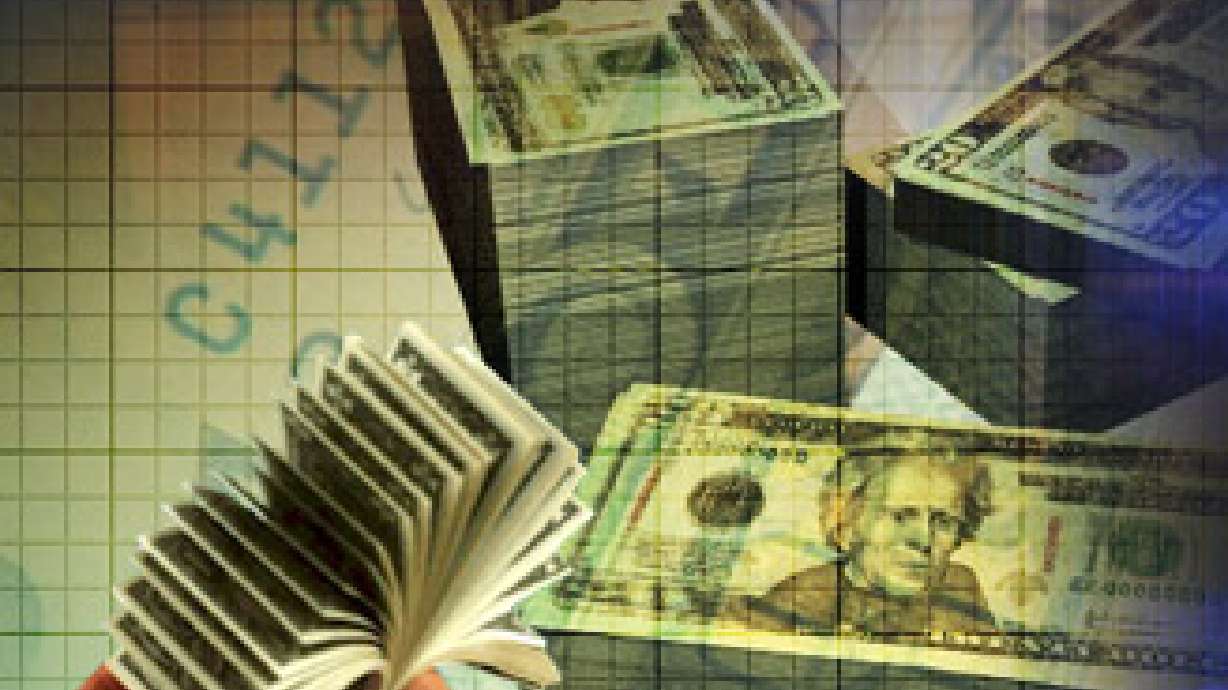Estimated read time: 4-5 minutes
This archived news story is available only for your personal, non-commercial use. Information in the story may be outdated or superseded by additional information. Reading or replaying the story in its archived form does not constitute a republication of the story.
By JEANNINE AVERSA
AP Economics Writer
WASHINGTON (AP) -- The economy grew at only a 1.1 percent annual rate in the fourth quarter of last year, the slowest pace in three years, amid belt-tightening by consumers facing spiraling energy costs.
Even with the feeble showing from October through December, the economy registered respectable overall growth of 3.5 percent for all of 2005 -- a year when business expansion was undermined by devastating Gulf Coast hurricanes.
The Commerce Department report, released Friday, offered the latest figures on gross domestic product, the best measure of the country's economic standing.
The 1.1 percent growth rate in the fourth quarter marked a considerable loss of momentum from the third quarter's brisk 4.1 percent pace. The fourth-quarter's performance was even weaker than many analysts were forecasting. Before the release of the report, they were predicting the GDP to clock in at a 2.8 percent pace.
The 1.1 percent growth rate was the smallest gain since the final quarter of 2002, when the economy expanded at just a 0.2 percent rate.
The weakness in the final quarter of last year reflected consumers pulling back, cuts in government spending and businesses being more restrained in their capital spending.
Economists felt that the slowdown in the final quarter was more of a temporary setback rather than any harbinger of a sustained period of economic weakness ahead.
"The economy hit a pothole in the fourth quarter. I'm not at all worried about the health of the economy," said Mark Zandi, chief economist at Moody's Economy.com. Zandi believes that economy in the current January-to-March quarter is already doing better and predicts economic growth will come in around a 4 percent pace.
In the fourth quarter, though, consumers turned cautious as high energy prices and rising borrowing costs took their toll budgets.
Consumer spending rose by just 1.1 percent pace in the fourth quarter, the slowest since the second quarter of 2001 when the economy was suffering through a recession.
Most of the weakness came as people sharply cut back on purchases of big-ticket goods, including cars and appliances. Spending on such "durable" goods dropped by a hefty 17.5 percent rate in the final quarter, the sharpest decline since the first quarter of 1987.
Another source of weakness in the fourth quarter was government spending, which had contributed to overall economic growth in prior quarters. In the fourth quarter, government spending declined at a 2.4 percent pace, the largest drop since the first quarter of 2000.
Businesses, meanwhile, boosted spending on equipment and software in the final quarter of last year at a 3.5 percent rate, the smallest gain since the first quarter of 2003.
Spending on residential projects also rose at a 3.5 percent pace in the fourth quarter. That was down from a 7.3 percent pace in the prior quarter and an additional sign that the housing boom is losing some of its steam.
An inflation gauge tied to the GDP report showed prices rose at 2.6 rate in the fourth quarter, down from a 3.7 percent pace in the third quarter.
However, when food and energy prices are excluded, "core" inflation -- which the Fed watches closely -- rose at a 2.2 percent rate in the fourth quarter, a pickup from the 1.4 percent growth rate in the third quarter. That suggests inflation is filtering into a variety of other prices.
To fend off inflation, the Federal Reserve is expected to boost interest rates next Tuesday one-quarter percentage point to 4.50 percent. It will be last meeting for Alan Greenspan, who will retire that day after more than 18 years running the central bank.
Zandi said the core inflation figures contained in Friday's report reinforces his belief that the Fed will tighten next week and again on March 28.
President Bush, in his State of the Union address Tuesday evening, plans to put the spotlight on some pocketbook issues, including high energy prices, tax cuts and expensive health care costs.
Public concern about the economy is still relatively high, according to polls. Sixty-four percent described economic conditions as fair or poor, while 34 percent said they are excellent or good, according to the Pew Research Center for People & the Press.
The 3.5 percent increase in GDP for all of 2005, was down from a 4.2 percent gain in 2004. Economists predict the economy for all of this year will turn in another good performance with growth topping 3 percent.
(Copyright 2006 by The Associated Press. All Rights Reserved.)








